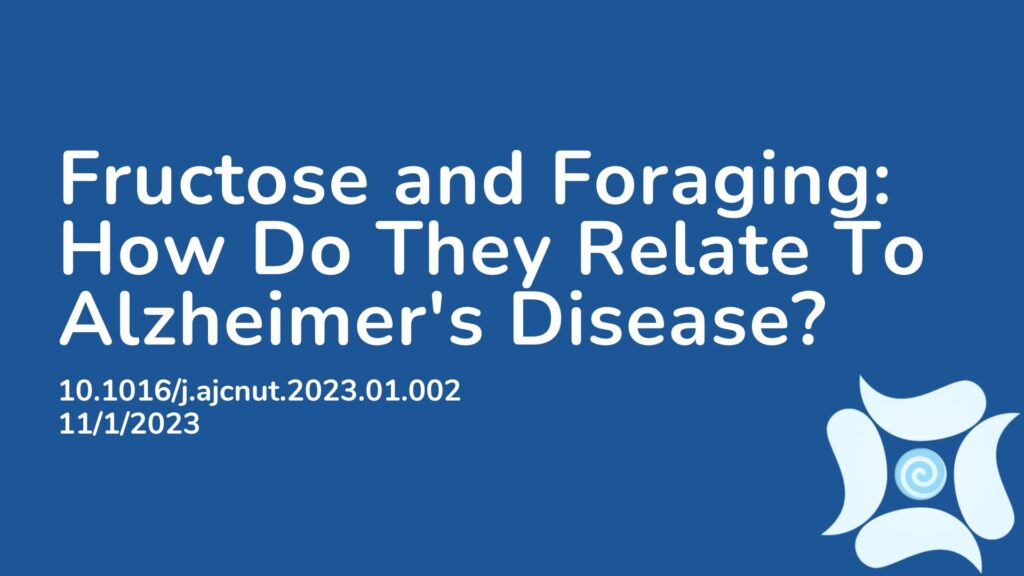Summary:
This study provides an alternate theory on the potential cause of Alzheimer’s Disease (AD), which is a condition characterized by the accumulation of abnormal proteins in the brain that impact memory and cognition. The researchers suggest that AD may be an evolutionary result of humans needing to forage for food during times of scarcity. According to their theory, foraging for food for early humans required focus, quick assessments and risk taking, which could be dampened by recent memories in the way of distraction. Fructose, which is a kind of sugar, showed to be critical at reducing blood flow to the brain and therefore reducing ability to recall recent memories, which in turn allowed more focus on food gathering. The researchers found that the entire response needed for foraging was triggered by the fructose, making fructose a critical component to the survival of humans. The researchers also suspect that the known tendency of some AD patients to mindlessly wander off might be an evolutionary result of the early human foraging response. The researchers suggest that trials assessing the reduction of fructose intake should be performed to determine if it plays any role in the prevention or management of AD.
Abstract:
An important aspect of survival is to assure enough food, water, and oxygen. Here, we describe a recently discovered response that favors survival in times of scarcity, and it is initiated by either ingestion or production of fructose. Unlike glucose, which is a source for immediate energy needs, fructose metabolism results in an orchestrated response to encourage food and water intake, reduce resting metabolism, stimulate fat and glycogen accumulation, and induce insulin resistance as a means to reduce metabolism and preserve glucose supply for the brain. How this survival mechanism affects brain metabolism, which in a resting human amounts to 20% of the overall energy demand, is only beginning to be understood. Here, we review and extend a previous hypothesis that this survival mechanism has a major role in the development of Alzheimer’s disease and may account for many of the early features, including cerebral glucose hypometabolism, mitochondrial dysfunction, and neuroinflammation. We propose that the pathway can be engaged in multiple ways, including diets high in sugar, high glycemic carbohydrates, and salt. In summary, we propose that Alzheimer’s disease may be the consequence of a maladaptation to an evolutionary-based survival pathway and what had served to enhance survival acutely becomes injurious when engaged for extensive periods. Although more studies are needed on the role of fructose metabolism and its metabolite, uric acid, in Alzheimer’s disease, we suggest that both dietary and pharmacologic trials to reduce fructose exposure or block fructose metabolism should be performed to determine whether there is potential benefit in the prevention, management, or treatment of this disease.
Article Publication Date: 11/1/2023
DOI: 10.1016/j.ajcnut.2023.01.002



